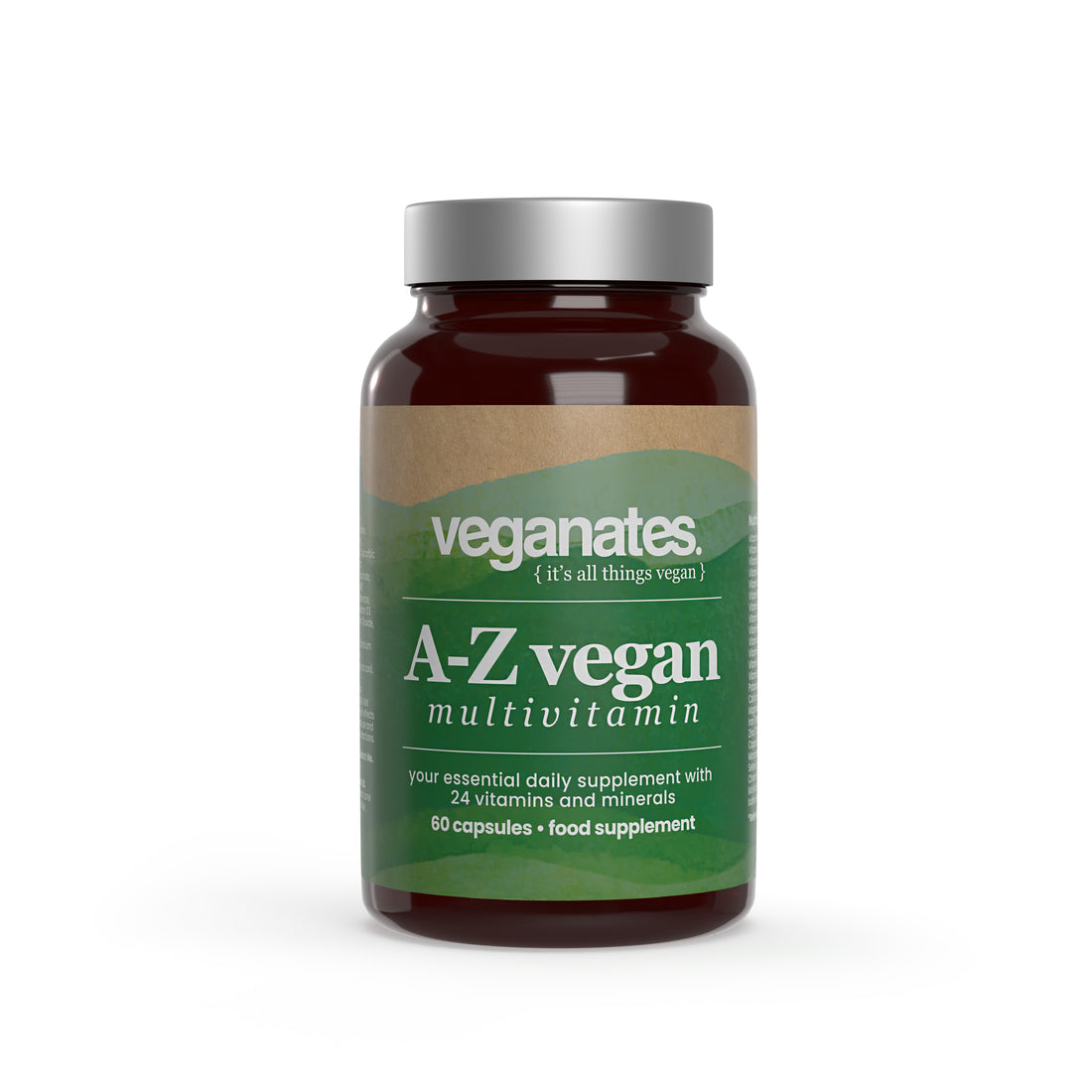Exploring the Benefits of Veganates Multivitamins
When following a vegan diet, it's important to ensure you're getting all the essential nutrients your body needs. Vegan multivitamins are a convenient and effective way to supplement your diet and bridge any nutritional gaps. Let's take a closer look at some key ingredients found in veganates A-Z multivitamins and their benefits:
Vitamin A (beta carotene)
Vitamin A plays a crucial role in maintaining healthy vision, supporting the immune system, and promoting cell growth and development.
Vitamin D3 (cholecalciferol)
Vitamin D3 aids in the absorption of calcium, promoting bone health and supporting immune function. It also helps regulate mood and may reduce the risk of certain diseases.
Vitamin E (natural succinate)
Vitamin E is a powerful antioxidant that protects cells from damage caused by free radicals. It supports healthy skin, enhances immune function, and may have anti-inflammatory properties.
Vitamin K2 (MK7)
Vitamin K2 is essential for proper blood clotting and bone health. It helps transport calcium to the bones and teeth, preventing it from accumulating in the arteries.
Vitamin C (ascorbic acid)
Vitamin C is well-known for its immune-boosting properties. It supports collagen production, promotes wound healing, and acts as an antioxidant, protecting cells from oxidative stress.
Vitamin B1 (Thiamine hydrochloride)
Vitamin B1 is involved in energy metabolism and helps maintain a healthy nervous system. It also aids in the proper functioning of the heart, muscles, and digestive system.
Vitamin B2 (Riboflavin)
Vitamin B2 is important for energy production, cell growth, and maintaining healthy skin and eyes. It also acts as an antioxidant, protecting cells from damage.
Vitamin B3 (Niacotinamide)
Vitamin B3 plays a key role in converting food into energy and is essential for the proper functioning of the nervous system. It also helps maintain healthy skin and supports the digestive system.
Vitamin B6 (pyridoxine hydrochloride)
Vitamin B6 is involved in over 100 enzymatic reactions in the body and plays a crucial role in brain development and function. It also helps regulate mood and supports the production of red blood cells.
Vitamin B9 (folic acid)
Vitamin B9, also known as folic acid, is important for DNA synthesis and cell division. It supports the formation of red blood cells and helps prevent neural tube defects during pregnancy.
Vitamin B12 (methylcobalamin)
Vitamin B12 is essential for nerve function, DNA synthesis, and the production of red blood cells. It is primarily found in animal-based foods, making it important for vegans to supplement.
Vitamin B7 (biotin)
Vitamin B7, also called biotin, supports the metabolism of carbohydrates, fats, and proteins. It promotes healthy hair, skin, and nails, and may help regulate blood sugar levels.
Vitamin B5 (D-Calcium Pantothenate)
Vitamin B5 is involved in energy production, hormone synthesis, and the formation of red blood cells. It supports healthy skin and helps maintain a healthy digestive system.
Potassium (chloride)
Potassium is an essential mineral that helps maintain proper fluid balance, supports nerve and muscle function, and regulates blood pressure. It also plays a role in heart health and bone maintenance.
Calcium (hydroxide)
Calcium is crucial for building and maintaining strong bones and teeth. It also plays a role in muscle function, nerve transmission, and hormone secretion.
Magnesium (citrate)
Magnesium is involved in over 300 enzymatic reactions in the body. It supports muscle and nerve function, regulates blood pressure, and helps maintain a healthy immune system.
Iron (ferrous citrate)
Iron is essential for the production of hemoglobin, which carries oxygen throughout the body. It supports energy production, cognitive function, and immune health.
Zinc (citrate)
Zinc is involved in numerous enzymatic reactions and plays a crucial role in immune function, protein synthesis, and wound healing. It also supports reproductive health and helps maintain healthy skin and hair.
Copper (bisglycinate)
Copper is necessary for the production of red blood cells, collagen synthesis, and the absorption of iron. It also acts as an antioxidant and supports immune function.
Manganese (citrate)
Manganese is involved in the metabolism of carbohydrates, cholesterol, and amino acids. It supports bone health, collagen production, and antioxidant defense.
Selenium (selenomethionine)
Selenium is a powerful antioxidant that helps protect cells from oxidative damage. It supports thyroid function, immune health, and may have anti-inflammatory effects.
Chromium (picolinate)
Chromium plays a role in regulating blood sugar levels by enhancing the action of insulin. It may help improve glucose metabolism and promote weight management.
Molybdenum (ammonium molybdate)
Molybdenum is involved in the metabolism of sulfur-containing amino acids and plays a role in detoxification processes. It supports normal growth and development and helps maintain a healthy nervous system.
Iodine (potassium iodide)
Iodine is essential for the production of thyroid hormones, which regulate metabolism, growth, and development. It also plays a crucial role in brain development during pregnancy and early childhood.
